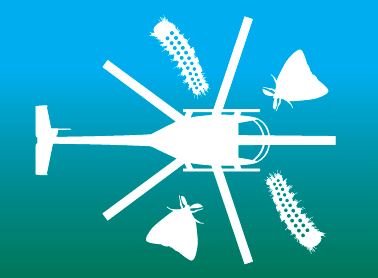Treatment overview
- 272 trees received TreeAzin injections
- 132 trees received ground sprays of BTK
You can also use our Interactive Treatment Map, to learn more about treatment locations.
Treatment areas
In 2021 Spongy Moth management was conducted in select parks and along select streets in Wards 1, 2, 3, 5, 6, 7, 8 and 9 where monitoring has indicated specific areas with a higher population of Spongy Moth and the potential for impacts to the city’s urban forest canopy. Elsewhere in the city, monitoring data show that the population of Spongy Moth is forecasted to remain at low levels in 2021.
Given the targeted nature of the Spongy Moth treatment in 2021 there were no specific safety measures are required on the behalf of residents. For safety reasons, residents are requested to maintain a physical distance of at least 2 metres (or 6 feet) from City staff or contractors.
Only publicly owned trees are treated through the City’s Spongy Moth Management program. Forestry staff recommend that residents in areas where Spongy Moth are present take some preventative measures to manage Spongy Moth on their property.
Frequently asked questions
We have prepared an FAQ document to answer some common questions that residents may have.
Stay connected
Sign up to receive news alerts on invasive species and tree pest management from the City’s Forestry team.
For more information on tree pests, email tree.pests@mississauga.ca or call 311 (905-615-4311 outside city limits).
